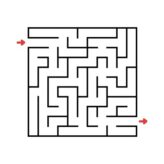As a regular subscriber to the AATS Newsletter, to say nothing of my personal ambitions as an amateur author, I am invariably conscious of a certain pressure put upon me to produce articles on a fairly regular basis. When the Muse foresakes me – as it does from time to time – I am faced with what the real authors call “writer’s block”. It is an uneasy experience, made more so in my case because – at the age of 84 – I am unsure just how much more time is being vouchsafed to me to continue this hobby. Perhaps my last offering has already made its appearance. Perhaps it has sunk without trace. It is distinctly possible that I am to be denied the time necessary to write that planned final work; that outstandingly acclaimed piece that will ensure my legacy as a scribbler lives on when I do not.
A recent incident got me thinking once again, leading to these few comments, the value of which I must leave to your own good selves. The other day I was  indulging in a crossword printed in one of our daily papers. This particular crossword delights in providing one-word clues which can be confusing since they can often be both noun and/or verb (ie they are ambiguous). The clue in question was simply ‘Maze’. As a reasonaby intelligent person with a fair grasp of the English vocabulary I knew I ought to know the answer, but I didn’t, and it drove me mad. In due course I went to bed and fell aslep until 5 am when I suddenly woke and knew instinctively that the answer that eluded me was ‘Labyrinth’. And so it was. I put my poor performance down to old age and a growing inability to summon Hercule Poirot’s “little grey cells”. But it got me thinking about that remarkable computer, the human brain.
indulging in a crossword printed in one of our daily papers. This particular crossword delights in providing one-word clues which can be confusing since they can often be both noun and/or verb (ie they are ambiguous). The clue in question was simply ‘Maze’. As a reasonaby intelligent person with a fair grasp of the English vocabulary I knew I ought to know the answer, but I didn’t, and it drove me mad. In due course I went to bed and fell aslep until 5 am when I suddenly woke and knew instinctively that the answer that eluded me was ‘Labyrinth’. And so it was. I put my poor performance down to old age and a growing inability to summon Hercule Poirot’s “little grey cells”. But it got me thinking about that remarkable computer, the human brain.
Our legal system and some (if not all) Religions make great play that we humans are all ‘equal’ – a comforting concept to be sure but one which I feel requires some qualification. Equal in judicial terms we may be, but equal in intelligence we most definitely ain’t – and I have 14 years’ teaching in secondary schools (to say nothing of years as an Examiner marking international exam papers) to back up this assertion.
So for the sake of simplicity let us roughly divide mankind into one of two categories when it comes to the question of measuring intelligence. The first of these (and by far the smallest group) is that of the elite whose brains are superior and generally react quicker than all the rest. They can often be associated as being those clever people having access to what is quaintly known as ‘light bulb moments’, defined as ‘a moment of sudden realization, enlightenment, or inspiration” as exemplified by Archimedes when he leapt from his bath and shouted ‘Eureka’ (ie I have it). Einstein is on record as having said the same thing iaround 1895 when he was but a 16 year old schoolboy. Makes you sick, doesn’t it? I have to confess I do not qualify for membership of this exclusive club. Admittedly like most of you I suggest I have probably had the occasional inspiration but sadly the wattage of my light bulb moments has never aspired to the point where I can claim such pre-eminence.
That brings us to all the rest of humanity (including me) whose brains are rather less illustrious, or may work at a slower pace. For these I am going to suggest that their more pedestrian pace of intellectual enlightenment should come under the heading ‘When the Penny Drops’. The phrase originates of course from the slot machines of our youth, and implies that intellectual understanding comes only after the passage of time or following frequent repetition (and sometimes not at all even then!) With me so far?
Now this revelation probably comes as something of an acute disappointment to many of my readers, who must now face up to the inherent difficulty of possessing a second class brain. Fear not. I have an encouraging proviso to impart. As already indicated at the beginning of this article, my brain is winding down due to my increasing old age, which presupposes that intellectual performance (ie the time it takes for the penny to drop) is sharper among the young but decreases with time. As an example, consider the newly born infant. They very quickly learn that crying out loud results in (a) being picked up, (b) being fed, or (c) having your nappy changed!
Clearly this is good news for the younger readers among us. But what of those nearing their Sell By date? Well, you could always resort to a regime of crosswords and other brain teasers in an effort to expose your brain to the intellectual equivalent of daily jogging. It can’t do any harm after all. A word of warning however. From a study of history it appears customary where violent revolution breaks out (as it is wont to do) that each power-grabbing totalitarian state seems to start off with a purge of all intellectuals (ie Russia and China) who are inevitably viewed as potential enemies of the people! Sometimes it pays to be dumb!
« The Name of the Game – Peter Culley (29th) || And All That Jazz – Roy Cleife (40th) »